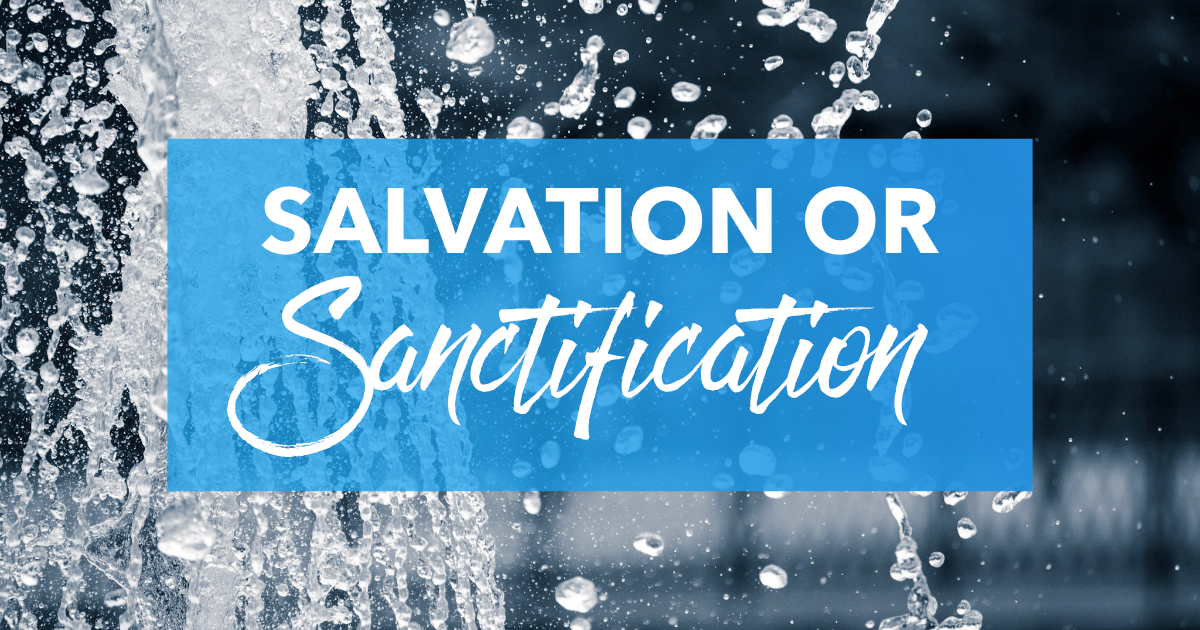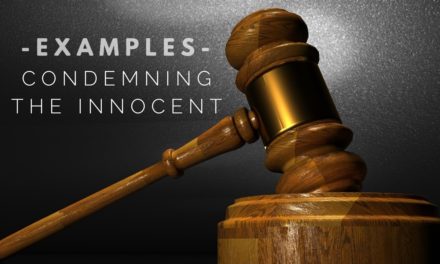“If we confess our sins, he is faithful and just to forgive us our sins, and to cleanse us from all unrighteousness.”
For much of my lifetime, I heard this verse referred to as a cleansing and restoring truth for believers who in some way had stumbled into sin. Such an interpretation affects sanctification. About fifteen years ago, however, I began to hear some claim this verse refers to the moment of salvation, insisting that it is really a salvation verse. So, is 1 John 1:9 a salvation or sanctification verse? After considering the various arguments, I believe for several reasons that 1 John 1:9 is a sanctification verse.
First, the stated purpose and audience addresses believers. The Apostle John repeatedly notes in the Gospel of John that when you believe in Jesus you have eternal life. He now begins 1 John, declaring that Jesus is “that eternal life.” Eternal life is ultimately someone, not something. Then, he states that his purpose for declaring this eternal life of Jesus is for “fellowship” among believers and especially fellowship with the Father and the Son (1:3), and for realizing “joy” in such fellowship (1:4). Both purpose statements use the word ἵνα (that) meaning “in order that” or “for the purpose that.” John’s focus, then, is not receiving eternal life, but having fellowship with that Life and so experiencing the joy of experiencing Jesus. Scripture does not use the word fellowship to denote getting saved but uses it instead to describe a blessing potential for those who are saved.
In the epistle, John addresses his audience as “my little children” (seven times) and “beloved” (four times). Also, John includes himself in the subject matter, using the pronouns we, us, and our more than 30 times in the ten verses of the first chapter. All this supports the conclusion that John is writing to believers regarding the privileges of their salvation—and not about how to get saved.
Second, the immediate context of chapter 1 and its grammar support the process of sanctification, not the moment of salvation. Verse 7 speaks of walking in the light. The word walking is never used interchangeably with standing. The moment of salvation provides you with a new standing in Christ. It is because of your new standing you can have a new walk. But walking is beyond standing, and therefore, beyond the salvation moment.
The words walk and cleanse in verse 7 are in the present tense, revealing they are repeated matters, not once for all. In keeping with this more-than-once emphasis, the word confess in verse 9 (explaining how to walk in the light) is also in the present tense.
Verse 9 specifically says, “If we confess our sins.” The plural sins reveals specific stumblings for which we must agree with God. If 1 John 1:9 is a salvation verse, it would need to say sin (singular) referring to the sin nature. The use of the plural cannot be referring to salvation or you would have to remember and name every single sin you ever committed to get saved! The issue here is simply the specific sins committed as a believer that grieve the Spirit. God never leaves us or breaks fellowship with us. But our sins break fellowship with Him.
But when we walk in the light by getting honest and agreeing with God, He is faithful (every time) and just (because we do have a right standing with Him) to (ἵνα, “in order to”) forgive us our sins. The verb forgive is in the subjunctive mood indicating possibility. This implies that which is future contingent upon agreeing with God. It is also in the aorist tense indicating the fact of an action. Therefore, God cleans us all up every time we side with the light of His truth.
Some argue that since all your sins are forgiven at salvation, there is no more need of forgiveness. But Romans 4:7-8 clarifies, “…Blessed are they whose iniquities are forgiven, and whose sins are covered. Blessed is the man to whom the Lord will not impute sin.”
Technically, according to this passage, when you trust Christ as Savior, all your past sins are forgiven, and all your future sins will not be charged to your account. In this sense your sins are covered past, present and future, and you are safe. But even though future sins will not be charged to your account, they do break fellowship with God (not Him toward you, but you toward Him); thus, the need and provision for 1 John 1:9.
And third, other passages support the conclusion that 1 John 1:9 is a sanctification verse. Some truths are provisional but must be accessed by faith to be experienced. Galatians3:26-27 declares believers “have put on Christ.” Yet Romans 13:14 commands, “But put ye on the Lord Jesus Christ.” Why does Romans command what Galatians declares? It is because positional and provisional realities must be depended upon to be experienced. The same is true regarding forgiveness. The provision was made at the cross. It’s done. But the access is by faith. Passages like James 4:7-10 [see article Draw Near to God] also concur with the interpretation that 1 John 1:9 is a sanctification verse.
While some may misuse or abuse 1 John 1:9, and even though our provision in Christ for experiencing His victory is more than enough, what would we do without the blessing of cleansing and restoration through the brokenness of this great verse? Many revivals start when some walk in the light and get appropriately honest before a holy God.

John Van Gelderen
Post Author
About This Blog
Hello, I’m John Van Gelderen. I am an evangelist and the president of Revival Focus Ministries, an organization for the cause of revival in hearts, homes, churches, and beyond, and for evangelizing. This blog is focused on experiencing Jesus. I believe in order to really live, you must access and experience the very life of Jesus Christ.













Would it be appropriate, given the whole of scriptural teaching on this topic, to confess known sin and simply thank God for the forgiveness He already provided at salvation? After we are saved we no longer need to access forgiveness. It’s a done deal! Would not asking for forgiveness as oppossed to confessing known sin and acknowledging forgiveness (thanking God for it) be a sign of unbelief or lacking faith? I don’t see the truth of forgiveness and confession in the same light as accessing something completely provisional like the life of Christ in my daily walk available through right… Read more »
Thanks for your input! It is true that the condition in 1 John 1:9 is confession, not asking for forgiveness. As to God only cleansing us since the forgiveness is once for all, we have to grapple with the grammar. The subjunctive (might, should) “forgive” following the “to” (lit. in order that) indicates that this occurs when the condition of confession is met. My interlinear reads this way: “… that He should forgive us our sins and cleanse us from all unrighteousness.” The subjunctive is used for both “forgive” and “cleanse” and the two promises are joined by “and.” If… Read more »
John,as usual an excellent article. I struggled with this passage for a while and came to the same conclusion for the same reasons. Thank you for writing on this issue it helped to confirm what I thought to be true. I look forward to meeting you at the “Mens Prayer Advance” in January. It was through Christ Life Ministries “Harold Vaughan” that I learned about you a few years ago. Since then I have read every thing you have wrote as well as other books you offer on your web site. It all as been a tremendous help and blessing… Read more »
Thanks, Brother! I’m glad the Lord has blessed the various books to your heart.